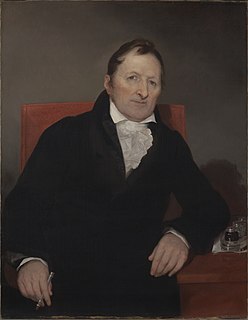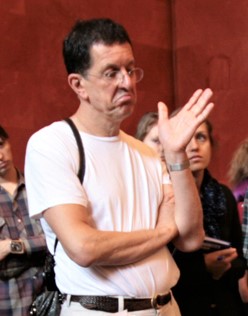A Quote by Bertolt Brecht
Something ignoble, loathsome, undignified attends all associations between people and has been transferred to all objects, dwelling, tools, even the landscape itself.
Related Quotes
It's no use telling us that something was 'mysterious' or 'loathsome' or 'awe-inspiring' or 'voluptuous.' By direct description, by metaphor and simile, by secretly evoking powerful associations, by offering the right stimuli to our nerves (in the right degree and the right order), and by the very beat and vowel-melody and length and brevity of your sentences, you must bring it about that we, we readers, not you, exclaim, 'how mysterious!' or 'loathsome' or whatever it is. Let me taste for myself, and you'll have no need to tell me how I should react.
I have nothing to make me miserable," she said, getting calmer; "but can you understand that everything has become hateful, loathsome, coarse to me, and I myself most of all? You can't imagine what loathsome thoughts I have about everything." "Why, whatever loathsome thoughts can you have?" asked Dolly, smiling. "The most utterly loathsome and coarse; I can't tell you. It's not unhappiness, or low spirits, but much worse. As though everything that was good in me was all hidden away, and nothing was left but the most loathsome.
It's very important to distinguish between what most people in the West think about knowledge, and what the Indian concept of knowledge is. In the West the knowledge is something that is tangible, is material, it is something that can be transferred easily, can be bought and sold; or as in India real knowledge is something that is a living being - is a Vidya.
A novel which survives, which withstands and outlives time, does do something more than merely survive. It does not stand still. It accumulates round itself the understanding of all these persons who bring to it something of their own. It acquires associations, it becomes a form of experience in itself, so that two people who meet can often make friends, find an approach to each other, because of this one great common experience they have had.





































